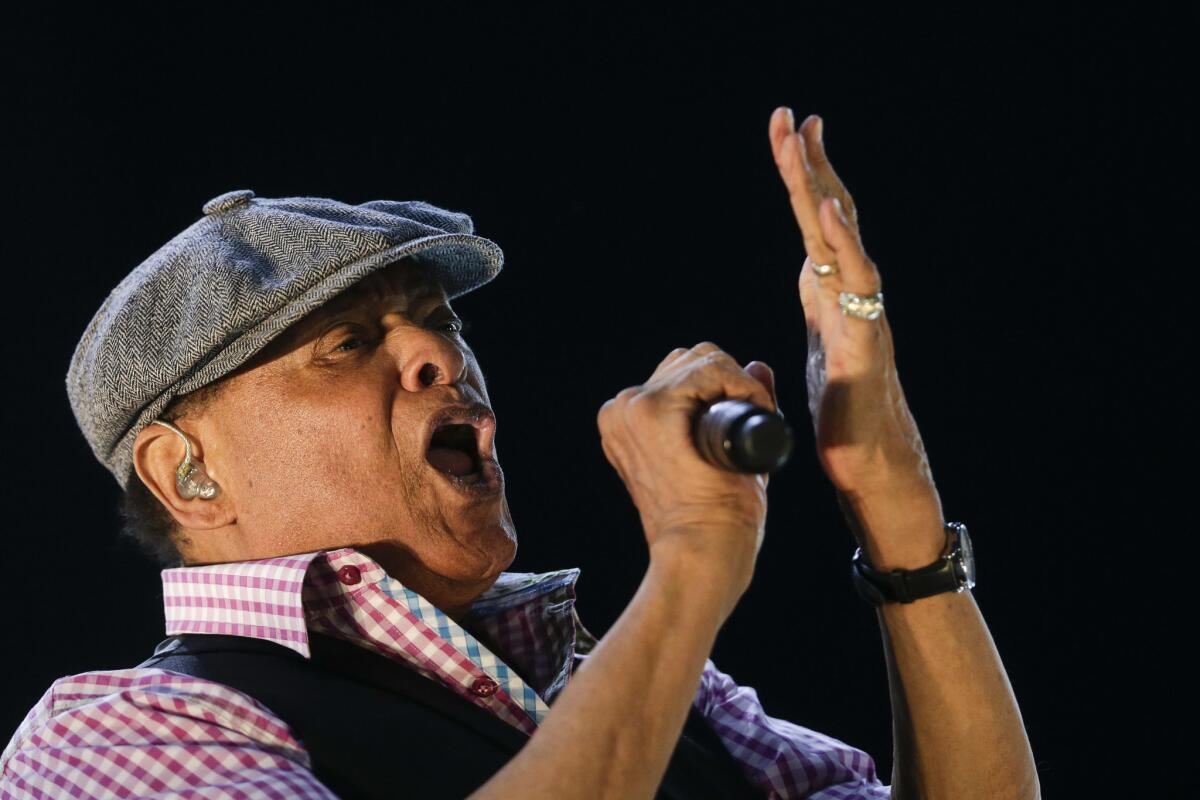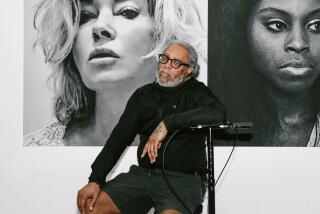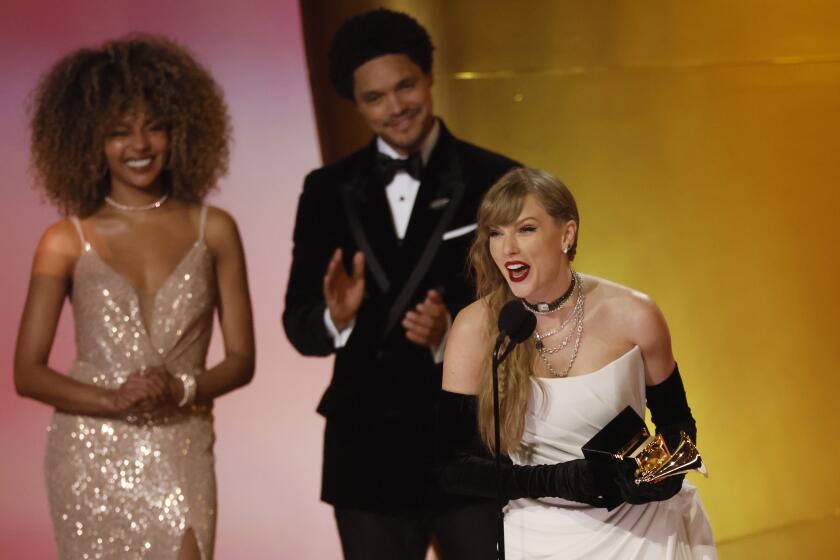An Appreciation: Vocalist Al Jarreau ventured further than his smooth reputation

When thinking about Al Jarreau, who died in Los Angeles on Sunday at age 76, one word comes insistently to mind: Smooth.
Much like his longtime friend and kindred spirit George Duke, who died in August 2013, Jarreau owned that free-flowing and often breezy subgenre somewhat derisively known as âsmooth jazz.â In reality, it was a cross-pollination of jazz with funk, pop and R&B that his voice helped establish in the â70s and â80s. From the nimble, rounded style that allowed him to glide from note to note in his biggest hit âWeâre in This Love Togetherâ to the feeling evoked by the sound of his name itself, Jarreau became synonymous with a bright sort of cool that soared beyond jazzâs often sharp corners.
Also like Duke â who counted Frank Zappa and Miles Davis among his collaborators â Jarreauâs 50-year career defied such simple categorization. A Midwestern native, Jarreau cut his teeth at Bay Area clubs like the Half Note and Gatsbyâs before moving to Los Angeles, where he appeared on the cityâs club and talk-show circuit.
In the early â70s, when his career began to take off, Jarreau earned comparisons to jazz greats such as Billy Eckstein, but his breakout 1975 album âWe Got Byâ could evoke soul great Bill Withers, most notably on the albumâs bawdy and bluesy title track, in which Jarreau was backed by subtle strings and keyboards. From the same recording, âYou Donât See Meâ offered a showcase for Jarreauâs acrobatic scat vocals playing off a spare funk backdrop.

The subsequent live double-album âLook to the Rainbow,â released in 1977, offered a similarly fierce display of vocal invention. His percolating interpretation of Paul Desmondâs âTake Fiveâ â a song most commonly associated with Dave Brubeck â is a rapid-fire tour-de-force as Jarreau breathlessly emulates three or four different instruments over the course of seven and a half propulsive, improvisation-rich minutes. Jarreau eventually came to be synonymous with a seeming imperviousness to rough edges, but here, it certainly wasnât for want of stretching himself in search of them. âLook to the Rainbowâ also earned Jarreau his first Grammy for jazz vocal performance.
The â80s brought Jarreau his greatest commercial success and what became his signature sound. His 1981 ballad âWeâre in This Love Togetherâ was a fixture on the decadeâs adult contemporary radio, and the album the song was taken from, âBreakinâ Away,â went platinum. Though the record is the beginning of Jarreauâs foray into the glossy R&B production of the time, his jazz roots remain visible in another look back toward Brubeck with a dramatic, jittery cover of âBlue Rondo a La Turk.â
In subsequent years, Jarreau seemed to embrace that poppier R&B sound more fully. With its glossy keys and echo-laden production, his 1984 single âAfter Allâ is a swooning example of the pop-R&B that came to be known as âQuiet Storm,â and his albums around this time mined various corners of this sound, including the quirky synth-funk of the live staple âRoof Garden.â In 1985, his profile had risen to the point where he appeared as one of the many immediately recognizable voices in the all-star benefit single âWe Are the World.â

In 1987 he released maybe his best-known song: The theme to the hit â80s comedy series âMoonlighting,â which featured his lyrics over music by Lee Holdridge. The song earned Jarreau another Grammy nomination and is a showpiece for the gentle and airy funk-pop that defined Jarreauâs style.The color-saturated â80s L.A. sunset skyline featured on the opening credits looked like Jarreauâs track sounded.
But for all his success on the smoother side of the spectrum, Jarreau continued to look further. He recorded a hard-to-find tribute to Bill Withers in the late â90s and even in recent years his collaborations included a single recorded with George Benson and Jill Scott, which earned Jarreau his seventh Grammy in 2007. He became a longtime favorite of the Hollywood Bowlâs annual Playboy Jazz Festival, combining with bassist Stanley Clarke for a tribute to his friend George Duke in 2014.
An effervescent concert presence, Jarreau had abruptly announced his retirement just days before his death, in a statement that shared the âcomplete sorrowâ he felt at being forced to give up performing.
Given the joy that was evident in Jarreauâs voice, that sounds as if it were an understatement.
See the most-read stories in Entertainment this hour Âť
Follow me over here @chrisbarton.
ALSO:
Appreciation: Bobby Hutcherson connected some of the highest points in jazz
More to Read
The biggest entertainment stories
Get our big stories about Hollywood, film, television, music, arts, culture and more right in your inbox as soon as they publish.
You may occasionally receive promotional content from the Los Angeles Times.











